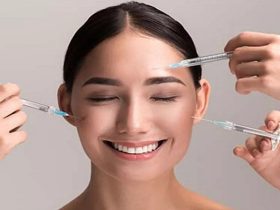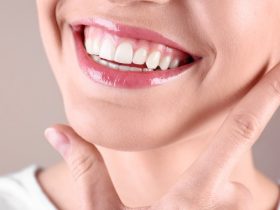Fermented beauty has become popular due to the popularity of organic skincare, K-beauty, and J-beauty. It’s time to let fermentation into the bath!
Many shoppers have switched from using numerous levels of beauty products to a simpler, more holistic skincare regime. The goal? To protect their skin from environmental aggressors like air pollutants, tobacco, heat, etc. whilst allowing it to heal and strengthen.
To this end, a new phenomenon of fermented cosmetics is emerging rapidly! Thanks to the surge in prebiotics and probiotics popularity.
How To Test Out Fermented Skin Care?
Due to their capacity to absorb fat, fermented skin products are currently becoming increasingly popular globally. Anyone can use fermentation-based skin care products because they are reliable and have skin-friendly additives like lactic acid and probiotics.
Choose between black tea, ginseng, hibiscus, bamboo sap extract, and herbal blends if you want to try fermented cosmetics for sensitive skin first. Always keep in mind that not everyone benefits from every brand. For the greatest benefits, you must determine what works for you.
Advice Before Using Fermented Skin Care
Keep the following in mind before using products made from fermented skin:
Identify The Components
Finding products containing fermented black soy, ginseng, sea kelp, dandelion, etc. is the very first thing to do.
Select The Appropriate Product Category
Find out which fermented additives, such as lactic acid, kombucha, amino acids, and peptides, are used in skin care products. Try and identify them in serums, lotions, creams, gels, and “leave-ins,” for example. “Leave-in” product lines are left on the skin and are not cleaned off.
Carry Out Research
Do a little online research and learn customer and product recommendations before using fermentation-based skincare products. You could better understand fermented products and how they affect your skin if you did this.
Why Fermented Cosmetics for Sensitive Skin?
According to a 2012 Journal of Medicinal Food study, fermented red ginseng has greater age-defying and anti-wrinkle effectiveness than traditional red ginseng. Furthermore, sensitive skin can use fermented cosmetics since they imitate cellular function and work in symbiosis with skin.
Additionally, they typically don’t encompass parabens since the fermentation process preserves the product’s shelf life with antimicrobial effects.
Which Ingredients to Look For?
Because there are numerous varieties of fermented cosmetics available for sensitive skin, which one is preferred for your routine depends on the skin problems you want to address.
Fighting Wrinkles and Fine Lines: Amino Acids
If you already have fine lines, buy products with amino acids because they help maintain healthy skin. Overall, the texture becomes tighter and perkier as a result.
When you see this phrase on the label, it’s reasonable to assume you’re gaining all of the skin-supporting perks of a fermentation-based skincare product.
In Order to Brighten: Sugar Acids
Unbeknownst to you, a lot of the synthetic exfoliants you already use in your regimen come from additives that have undergone fermentation: Actually, a direct result of plant fermentation is alpha-hydroxy acids.
If you want to brighten your skin, buy the ones with fruit and sugar acids. These acids work to break down the forces that hold dead skin cells to your layers of skin. They also sweep them down to make room for vibrant, new skin cells.
Fermented Antioxidants for The Preservation of The Environment
Antioxidants help protect against external factors like emissions and UV radiation. As a result, they protect you from free radical damage, making them a crucial component of any morning routine.
In the End
The best skincare regimen in the coming years may be fermented skincare products. To get the most benefits for gleaming, clear skin, try out all the fermentation-based skin care products for daily use.








Leave a Reply